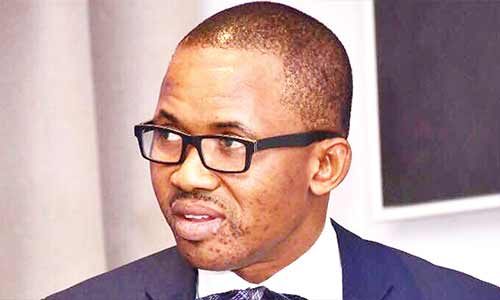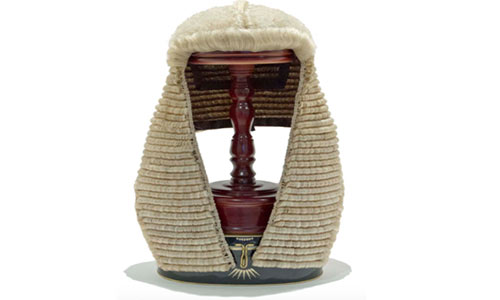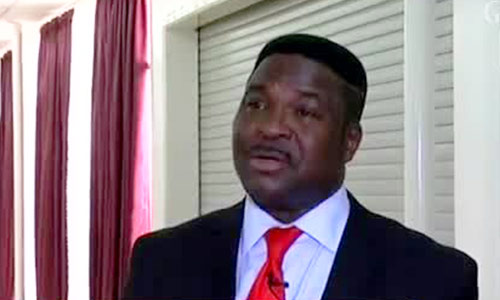Nullification Of Section 84 (12) Is A Booby Trap For APC — Ajulo

A Constitutional and human rights lawyer, Dr. Kayode Ajulo, said the judgment could not stand in the face of the law.
He also predicted a higher risk for political office holders who may want to take advantage of it.
He raised three observations thus:
*The Judgment of the Court is per incuriam
*Political appointees are not public servants
*The National Assembly is a necessary party and has a right to set same aside on Appeal
*Compliance with the judgment of the trial court is a booby trap for the ruling APC.
He said: “While the position of our laws is clear to the effect that judgments of courts are valid until set aside on appeal no matter how erroneous they might be, however, considering the ratio decidendi of the decision of the court viz-a-viz the expediency and imminent consequence of the decision of the court on our political administration and party politics, it is therefore imperative to pensively dissect the judgment of the court in the light of the spirit of the Constitution and position of the Apex Court.
“Let us get a point clear: it is undoubted that Courts of superior record by virtue of Section 6 of the Constitution of the Federal Republic of Nigeria, 1999 (as amended), have the power to declare an Act of the National Assembly unconstitutional, null and void to the extent of its inconsistency.
“More so, plethora of authorities have established the principle that where a provision of an enactment by the legislature conflicts with the express provision of the Constitution, the said extant law shall be declared null and void.
“That is the essence of Section 1(3) of the 1999 constitution as Amended. It provides that ‘If any other law is inconsistent with the provision of this constitution, this constitution shall prevail, and that other law shall, to the extent of the inconsistency, be void.’
“It is however instructive to note that in cases where legislation is contested for being in conflict with provisions of the Constitution, the courts have only one duty: ‘to lay the article of the Constitution which is invoked beside the statute which is challenged and to decide whether the latter squares with the former… See the cases of U.S. v. Butler et al (1936) 297 U.S 1 (and Marwa & Ors v. Nyako & Ors (1980) LPELR-2936 (SC).
“In the case under review, the learned trial judge noted that the provision of Section 84 (12) of the Electoral Act is inconsistent with the provision of Sections 66 (1) (f), 107(1) (f), 137 (1) (f) and 182 (1) (f) of the Constitution.
“Suffice to state that a pensive juxtaposing of the Sections of the Constitution relied upon by the learned trial judge require persons employed in the public service of either the federal government or state governments.
“What is more, the provision of Section 318 of the Constitution as to who qualifies as a public servant is unambiguous. Similarly, decisions of Court abound on this clear position. See Dada V. Adeyeye (2005) 6 NWLR (Pt. 920), Ojonye V. Onu & ORS (2018) LPELR-44223) where the appellate Courts have held that political appointees or political office holders are not public servants as provided for under the Constitution.
“It therefore implies that the decision of court, with respect, is per incuriam and the ratio of court cannot find coverage under the Sections of the Constitution cited by the learned trial judge to arrive at the decision.
“Based on the doctrine of judicial precedents, it is quite apposite that the Appellate Court will set aside the decision of the trial court.
“For those who have mind to think, the perdurable questions to ask include:
*Why was the suit filed in far away Umuahia, Abia State?
*Why were the National Assembly and Independent National Electoral Commission not joined as parties to the suit?
“To answer these thought-provoking questions, attention must be readily drawn to the fact that the National Assembly who is the authority empowered by Section 4 and 228 of the Constitution of the Federal Republic of Nigeria, 1999 (as amended) and the Independent National Electoral Commission who is empowered to regulate the conduct of election in Nigeria by virtue of Section 153 of the Constitution respectively ought to have been joined by the Plaintiff as necessary parties to the action.
“While it is not the duty of a judge to force on a Plaintiff the party to be sued, however judicial authorities abound to the effect that where a judge considers that a necessary party has not been joined to an action, it can suo motu make an order for the joinder of such necessary party.”
Ajulo said the swift reaction of the Federal Government and the office of the Attorney General of the Federation to the court ruling “leaves too much to be desired of the ruling All Progressives Congress.”
Continuing, he said: “If the All Progressives Congress should rely on the ephemeral judgment of the Court and proceed to permit Political Appointees to vote and contest at its primaries and conventions, same is a disaster going somewhere to happen.
“What readily comes to mind is the decision of the Supreme Court in Zamfara State where the Apex Court held that there were no validly elected candidates in the various elective positions in the state from the APC.
“In lending my two cents, it is not a triumph neither is it time for drunk fanfare for the All Progressives Congress.
“The leadership of the party must be very circumspect in preventing a repeat of what happened in Zamfara State.



